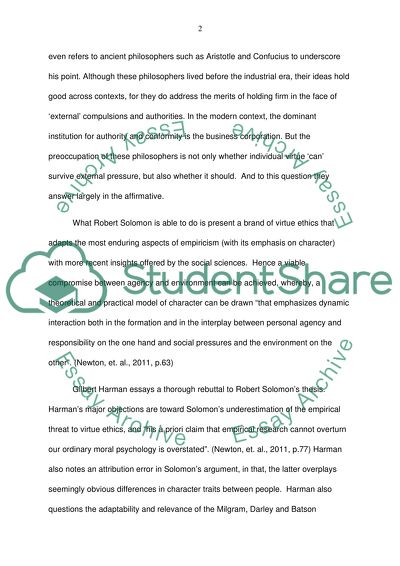Cite this document
(“Can Individual Virtue Survive Corporate Pressure Essay - 1”, n.d.)
Can Individual Virtue Survive Corporate Pressure Essay - 1. Retrieved from https://studentshare.org/philosophy/1465865-can-individual-virtue-survive-corporate-pressure
Can Individual Virtue Survive Corporate Pressure Essay - 1. Retrieved from https://studentshare.org/philosophy/1465865-can-individual-virtue-survive-corporate-pressure
(Can Individual Virtue Survive Corporate Pressure Essay - 1)
Can Individual Virtue Survive Corporate Pressure Essay - 1. https://studentshare.org/philosophy/1465865-can-individual-virtue-survive-corporate-pressure.
Can Individual Virtue Survive Corporate Pressure Essay - 1. https://studentshare.org/philosophy/1465865-can-individual-virtue-survive-corporate-pressure.
“Can Individual Virtue Survive Corporate Pressure Essay - 1”, n.d. https://studentshare.org/philosophy/1465865-can-individual-virtue-survive-corporate-pressure.


